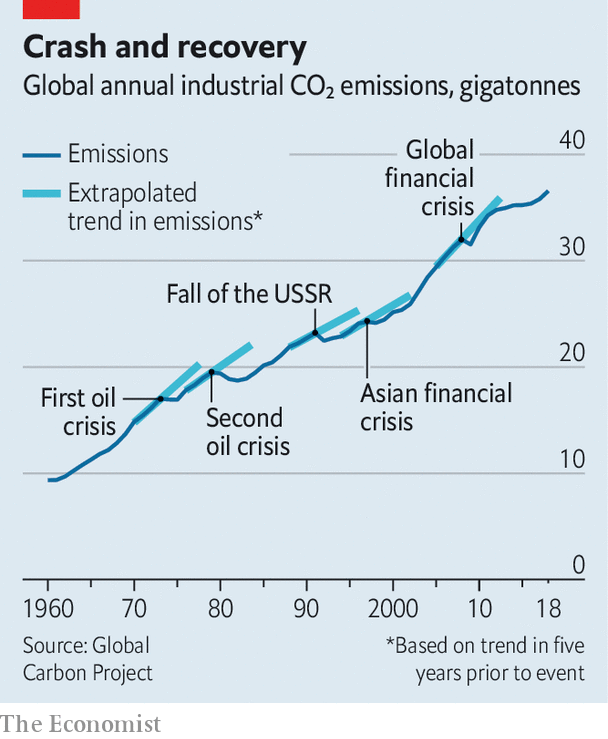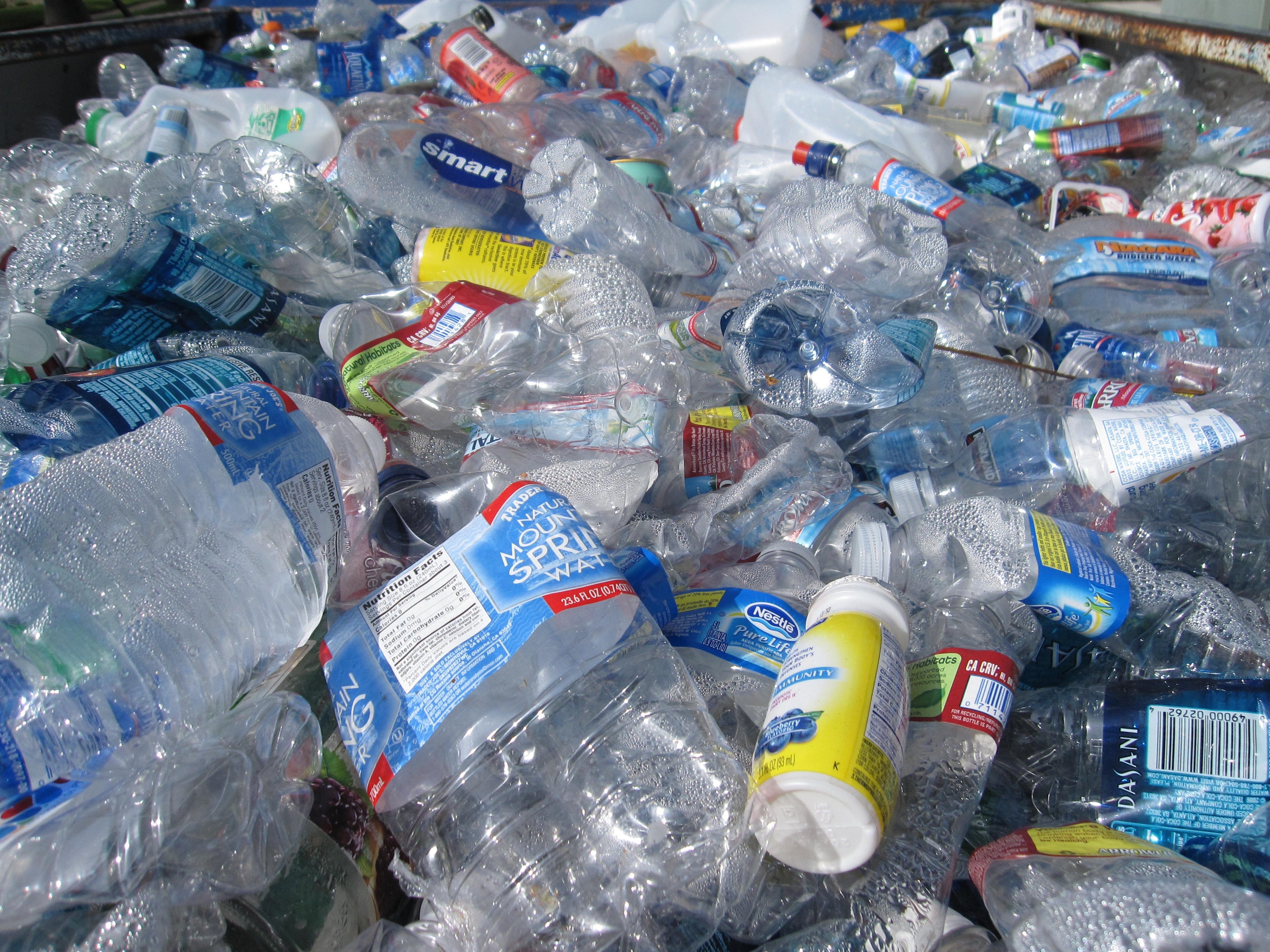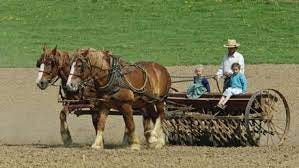We can stop growing and still live well.
“When you realize that under capitalism, a forest isn’t worth anything until it is cut down, you begin to see where the ecological crisis comes from.” -Adam Idek Hastie
“Economic growth may one day turn out to be a curse rather than a good, and under no conditions can it lead into freedom.” -Hannah Arendt
When European settlers came to America in the 16th century, forests covered about 50% of the ground. Plains, woods and wetlands were filled with all kinds of animals and plants. Now the US looks like a giant subdivision connected by freeways, and most of the species are gone.
What happened? Economic growth happened. Economists, politicians and corporations consider growth the greatest good, even the purpose of an economy. The World Bank believes global growth is the answer to poverty, inequality, overpopulation, and environmental damage.
“A rising tide lifts all boats,” in the words used by Ronald Reagan. But, as ecological economist Herman Daly points out, growth past a certain point creates more costs than benefits, more damage than progress. In the rich countries, Daly says, we are far past that point. The more we grow from here on, the worse off we will be.
America’s forests tell the story. In colonial times and since, entrepreneurs saw the forests and built logging operations, sawmills and factories, to turn the trees into houses and furniture, fences and railroad ties. At the same time, farmers cut down and burned trees to make room for agriculture.
When the forests in a region were gone, the industries moved on. According to historian Michael Goldston’s book The Southern Key, the wood industry started in the Northeastern states, then moved to the South, then the North Central region, finally to the Northwest, Alaska and Canada. In addition to buildings and furnishings, millions of trees (living things that provided homes for other living things) have been killed to make paper and toilet paper. All of these products were sold on the market, creating economic growth that has enriched some humans, but has left little behind for living things, including us. Trees can grow back, if farms or freeways don’t take their place, but what usually replaces the forests are tree farms lacking most of the life of the original.
As with wood, so with all wealth: everything we eat, wear, live in, use or own came originally from Nature. Human labor and technology have made these things more available, convenient, and useful, but the things themselves were provided for free by Mother Earth.
Beyond the products we make of it, the Earth provides all kinds of vital support services for life. Nature recycles wastes, purifies water, grows food, and maintains a healthy climate. Industrial activity interferes with those services, as we see with the increasing water shortages and climate chaos in the world today.
According to Herman Daly, capitalist economic activity is a three-step process:
- Capture some resource from Nature.
- Turn it into a product which can be sold and consumed.
- Return the waste products to some natural sink (like the ocean or atmosphere or the side of the road) in a degraded, nearly-useless, often-toxic form.
For example, oil is pumped from the ground, refined into a powerful fuel (along with toxic byproducts), burned for a car trip or electricity generation, and returned to the air as carbon dioxide, which has no significant use and is heating the planet. Capitalist society is like an animal consuming the world’s gifts and excreting its waste back into Nature.
According to Herman Daly, capitalist economic activity is a three-step process: 1. Capture some resource from Nature. 2. Turn it into a product which can be sold and consumed 3. Return the waste products to some natural sink (like the ocean or atmosphere or the side of the road) in a degraded, nearly-useless, often-toxic form.
Consumption of Nature always produces side effects that can outweigh the value of what is consumed. Deforestation reduces rain and creates deserts out of productive land. Mining makes toxic pits out of mountains and rivers.. The costs of economic activity include pollution, military conflict over resources, loss of other uses of land or water, denial of resources to future generations, and health impacts such as cancer from industrial processes.
This dynamic of economic growth swallowing up its own future is not only an American problem. It happens almost everywhere on Earth. Not only forests, but fish, water, oil, and topsoil are among the types of natural capital that industrial society consumes, calling that consumption “growth.”
Economic growth must stop if we hope to survive climate chaos. The emission of greenhouse gases from burning fossil fuels is strongly correlated (up to 99% in some studies) with economic activity. As this graph shows, the only time greenhouse gas emissions slow is when growth stops during economic downturns.

(Source: Economist.com)
What is growth? How is it measured?
The size of an economy is usually measured by gross domestic product (GDP), sometimes called gross national product (GNP,) defined by Investopedia as “the total monetary or market value of all the finished goods and services produced within a country’s borders in a specific time period.” So, GNP is a measure of all the money-making activities in a country.
Economic growth usually means a year-to-year rise in GNP. Economists think rising GNP is always a good thing, because more money will be circulating and people will have more to spend. Some evidence supports this belief, but calling growth a benefit ignores the question of what is growing. Economic activity can do all kinds of harm and still count as GNP, as long as someone pays for it.
Expenses like the cost of cleaning up a polluted river, or treating environmental illnesses are paid economic activities, therefore part of a growing GNP. So unsurprisingly, there is little evidence that economic growth correlates with health or happiness. In fact, Drexel University professor Jose Tapia Granados MPH,PhD has shown that people in economic boom times tend to have poorer health than during recessions. And Derrick Jensen, author of Bright Green Lies, writes more starkly, “The economy consists of converting the living into the dead, and GNP is a measure of how quickly this is done.”
One form of economic growth is human population growth. More people create a bigger economy, with more workers and more consumers. Limiting population growth is controversial for moral and religious reasons, but, although Daly says that limiting over-consumption is a more important problem, population control is also needed. China’s rapid climb out of deep poverty started in 1979 with their limiting families to one child each.
There are other ways of measuring economic well-being that do not monitor consumption of Natural resources. Instead of measuring consumption and calling it income, we could measure utility, meaning people’s health and happiness — there is already a Gross National Happiness Index or GNHI used by some countries — or sustainability, meaning the health of the natural world we are leaving for future generations. We could measure growth of human creativity and interaction, instead of things owned or money spent.
Not everyone agrees
Warnings about the dangers of growth are not new. Scientists from Thomas Malthus in 1798 to Paul Ehrlich in 1968 warned of the dangers of overpopulation. Economists and scientists calling themselves the Club of Rome published a long report in 1972 called Limits to Growth, warning of environmental collapse if the economy continued to expand. People listened, but many disagreed.
University of Maryland economist Julian Simon believed human intelligence would always solve problems as they were created, so things would keep getting better. In 1980, he famously bet Paul Ehrlich that the price of raw materials would go down over the following 10 years, rather than up as they would if resources were being exhausted. Simon won that bet.
Science keeps creating new ways for people to enrich themselves and solve problems. Instead of dumping the waste products of gasoline refining onto land and water, scientists created plastic, which turns those wastes into useful products, which in many cases replaced wood or paper. In his book, The Ultimate Resource, Simon argued that, while some supplies might be physically limited, technological innovation makes resources in practice inexhaustible. When resources run low, prices rise, driving people to find ways to recycle things and find new alternatives.

A great scientific advance (Photo by tanvi sharma on Unsplash)
In the 20th Century, people warned that oil was running low (called Peak Oil,) but increasing prices drove the discovery of shale oil, (fracking) and tar sands that lowered the price again. When overfishing empties the sea of fish, we build fish farms along the coast. When topsoil is lost through industrial farming, farmers grow food with petrochemical fertilizers. And so on. So far, Simon has been right. From the standpoint of material standards of living, growth is good.
Others insist that human innovations have not changed the destructive effects of economic growth on Nature. We may be able to enjoy our rates of consumption for a long time, but only if we ignore the mountains of plastic waste clogging land and sea, the mass extinction of animal and plant species, the spreading deserts, polluted water, rising sea levels and the climate chaos caused by increased oil burning and deforestation. The economy cannot replace ecological capital at the rate it is being destroyed. It’s gotten too big.
Life without economic growth is possible
If economic growth is truly using up our living world, is there an alternative? Neoliberal economists say no; unrestricted capitalism is the only system that meets human needs. But actually, there are several choices. None of these ideas are new, but because capitalism needs growth to function, they cannot be implemented or even conceived of in a capitalist system. Because capitalism has provided high material standards of living to many for 200 years, while crushing its opponents, it has, in the words of philosopher Frederic Jameson, “become easier to imagine the end of the world than the end of capitalism.” Yet, the ordering of society around human greed — which is what capitalism does — has not been normal for most of human history. Living without growth (“de-growth”) will require profound changes in our ways of life, but most of them seem like positive changes to me.
● Indigenous people around the world have never pursued economic growth or even imagined it. As Robin Wall Kimmerer describes at length in her book Braiding Sweetgrass, Native Americans based their economy and culture on giving back to the Earth, not only taking. They made decisions based on what would be good for the 7th generation to come, not for the next business quarter. They never took more than 50% of any species they harvested or fish stock they caught. Kimmerer says we need to learn to live more like indigenous people.
● Religious groups like the Quakers and the Amish emphasize living simply, avoiding unnecessary consumption and technological progress, and they work hard but live quite well. Successful religious communities like the Israeli kibbutzes and the early Christians, didn’t need economic growth, and they became powerful.

Amish in 2021 (Image: ohiosamishcountry.com)
● More recently, movements to organize social sharing as an alternative to markets have gained strength and size. You can read about some of them at shareable.net. Gift economies are common among indigenous societies, where social status comes from how much you give, not how much you have.
● Rich people could reduce their consumption. We will probably need to make them do it, but it could be done. Societies could reduce population growth with a one-child policy like China had for 35 years. (In 2015, they adjusted to two children.)
● Herman Daly says that humans must learn to be frugal first, then efficient. Without a desire to conserve, more efficiency often leads to more consumption, a phenomenon called the Jevons paradox. For example, when cars get better gas mileage, people drive more because it’s cheaper.We have to love the Earth enough to make conserving it our guiding light.
● We also need science and technology, in the service of Earth. Scientists in China and in the Netherlands have figured out ways to reclaim deserts into green valleys. You kind of have to see it to believe it.

Desert turned green in China (Image: openEdu)
Robin Kimmerer, a botanist herself, says that science and indigenous wisdom can work together, if scientists stop thinking they have all the answers. She and her botany students and Native planters have spent years bringing sweetgrass back to the Mohawk Valley, where it had become extinct because of invasive species and paving of its land.
● Restoring land is the kind of work many of us could be doing. Because de-growing the economy will reduce jobs, we will need a universal basic income (UBI) and a jobs program restoring natural spaces, protecting water, and replacing wasteful infrastructure.
Daunting as such changes seem, they might still be possible. Michael Higgins, President of Ireland, told the Engineers Ireland 2020 national conference that the world needed de-growth, de-globalization, and eco-socialism instead of neoliberal capitalism, and he was counting engineers to help make it happen.
Higgins said the financial, political, and military forces supporting endless growth are huge and powerful, but that we must try to win them over or overcome them. We will also have to convince the billions of believers in wealth accumulation that there is a better way, living in harmony with our world. We need to speak up about this approach to life, and we need to live it.
Thanks for reading! Follow me on Twitter, on Facebook or my blog The Inn by the Healing Path. Hire me for freelancing, editing, or tutoring on LinkedIn.
See this post on Medium: https://medium.com/bigger-picture/how-economic-growth-kills-our-future-8686a9bcd23b
#The_UN_Goals #goodjobs #together










